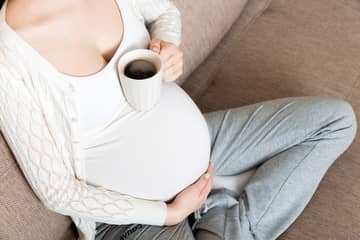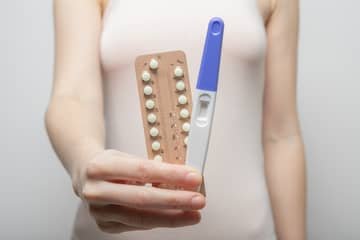
What tea in pregnancy? Lime, mint or green?
Already at the beginning of pregnancy, expectant mothers are often interested in what they can and cannot eat and drink. Some foods and drinks are not suitable during pregnancy because they could negatively affect the developing fetus. However, there are also foods and drinks that are, on the contrary, beneficial to health and can be consumed either without restrictions or only in limited quantities during pregnancy.
Thanks to the intake of a sufficient amount of suitable fluids, metabolism is supported, good kidney function is ensured and also the excretion of toxic substances arising in the organism. A healthy drinking regime is especially important during pregnancy, because a lack of fluids causes headaches, fatigue or constipation. Is black, white or green tea suitable during pregnancy? Can herbal teas be consumed?
2 to 3 liters per day
The amount of fluids you need to drink per day is an individual matter. A pregnant woman should drink 2 to 3 liters of fluids during the day. Liquid consumption is related to the composition of the menu and the season - we naturally drink more in summer than in winter. It is important to distribute liquids evenly throughout the day and to avoid liquids before going to bed, so that you do not have to get up to go to the bathroom at night. By drinking regularly, you will avoid feeling thirsty and dehydrated. Just like a lack of fluids, their excess can also have an adverse effect on health – excess fluids put a strain on the kidneys, which have to excrete excess water.
The most suitable and healthiest drink is pure water, but during pregnancy it may not be the only option for replenishing fluids. Suitable drinks include baby and spring waters, fresh fruit and vegetable juices diluted with water, unsweetened and not very strong teas. Rooibos and fruit teas are recommended, black and green tea should be limited due to their theine (caffeine) content.
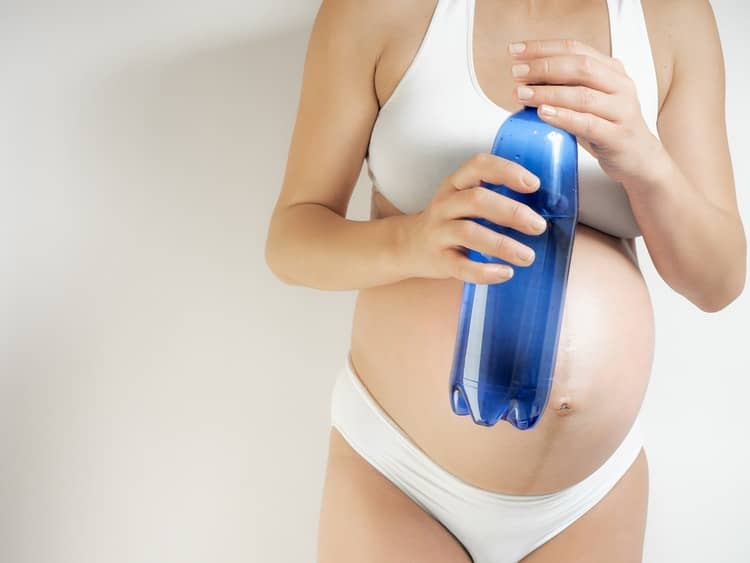
Teas during pregnancy - black, green and herbal teas
Drinking tea during pregnancy is safe, but certain precautions should be followed. The World Health Organization (WHO) considers a safe daily dose of caffeine during pregnancy up to 300 mg, the American Association of Obstetricians and Gynecologists (ACOG) considers a safe daily dose of 200 mg of caffeine. Black, green and white tea contain caffeine, so you should only drink them in limited quantities. A cup of black tea has up to 50 milligrams of caffeine, a cup of green tea 25-60 mg of caffeine.
Tea has a relaxing effect and will supplement the increased need for fluids during pregnancy, but it can also act as a natural medicine to prevent unpleasant pregnancy symptoms or be a preparation for childbirth.
Green tea
Despite the fact that it is a good antioxidant, there is no need to overdo it with green tea during pregnancy. You can enjoy one or two cups of quality green tea without any regrets. If you want to drink more cups, fill the tea bag with hot water, let it steep for 30 seconds, then remove it and fill with hot water again. Caffeine should be excluded from the tea during the first brewing.
Black tea
Black and white tea are allowed during pregnancy, but also only in limited quantities. One to two cups a day is suitable. If you drink coffee, green and black tea should be avoided on the given day. This way, you can better protect the amount of caffeine you take during pregnancy.
Ginger tea during pregnancy
Ginger is an effective natural remedy for increasing the body's defenses, it helps with loss of appetite and morning sickness. Ginger is not completely prohibited during pregnancy, but the recommended doses must be followed. 1 gram of dried ginger or 4 grams of fresh ginger is suitable daily. 1 cup of tea a day is safe, especially for morning sickness or a cold.
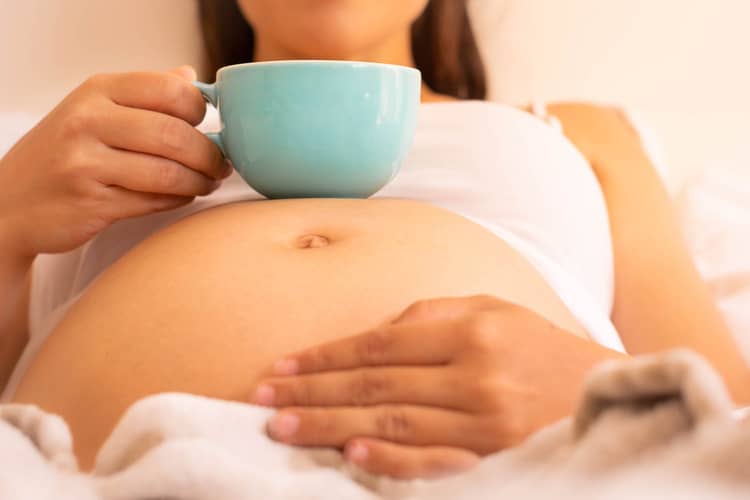
Herbal tea during pregnancy
Not all herbs are suitable during pregnancy - some are safe only in the 1st trimester, some are recommended only at the end of pregnancy and some are not suitable at all. When choosing herbal tea, you should proceed with caution and pay attention to the recommendations regarding dosage during pregnancy.
Rooibos
It contains a minimal amount of caffeine, it can be mixed with other ingredients to create interesting combinations of flavors, and its beneficial effects on health are also not negligible. It contains a lot of antioxidants, improves bone health and cholesterol. According to one 2017 study conducted on rats, rooibos has no adverse effects during pregnancy.
Chamomile tea during pregnancy
Morning sickness is often associated with the first three months of pregnancy. Chamomile (chamomile, camomile) is suitable for alleviating these symptoms. Chamomile has anti-inflammatory effects, has a positive effect on digestion, and its calming effects are also known.
Mint tea during pregnancy
Mint during pregnancy is only suitable in limited quantities. It has the ability to maintain the normal activity of the digestive system, relieve nausea, morning vomiting and heartburn. As it can stimulate menstruation and uterine blood flow, you should not consume peppermint tea during the 1st trimester.
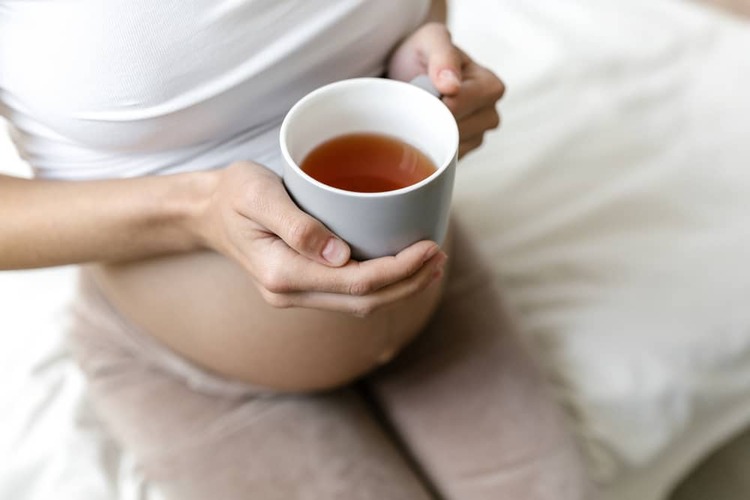
Honey tea
It improves digestion, regulates blood pressure, helps with hemorrhoids and headaches, has relaxing effects, calms the nervous system, helps with depression and insomnia. Honeydew helps maintain hormonal balance and helps with cramps. It is therefore a very suitable herb during pregnancy.
Rosehip tea during pregnancy
Rosehip tea is suitable for supporting immunity. It contains a lot of vitamin C, B2, B6, K and provitamin A, it is known for its diuretic and diaphoretic effects. If you suffer from the flu or a cold during pregnancy, you can indulge in one or two cups a day.
Linden tea in pregnancy
Like rosehip tea, linden flower is also suitable for flu and colds during pregnancy. It has an anti-inflammatory effect, reduces temperature and improves digestion.
Fennel tea
Fennel tea can be helpful for indigestion, inflammation, sore throat, cough, high blood pressure or urinary tract infections. It has diuretic and detoxifying effects, supports the function of metabolism. During pregnancy, it is suitable in limited quantities, especially in the higher stages of pregnancy. It is beneficial for nausea or heartburn, you should consult your doctor about its use and dosage.
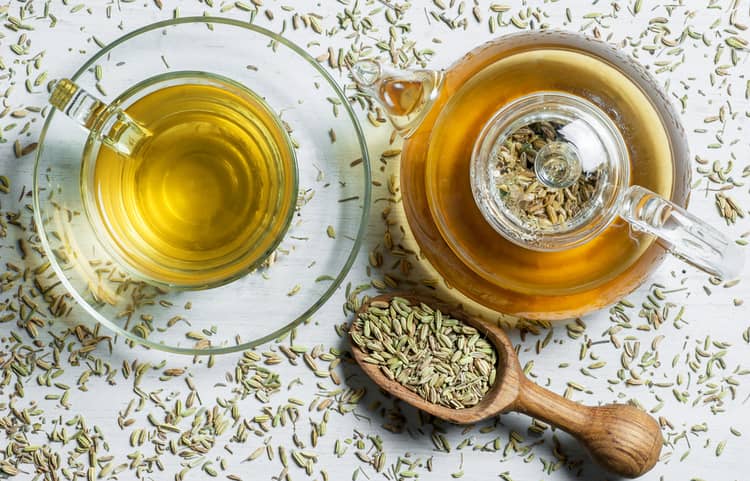
Raspberry, alchemy and nettle
Herbal tea made from raspberry (1 cup) and alchemy (1-2 cups) is suitable until the end of pregnancy as a preparation for childbirth. Blackberry supplies the body with valuable substances, supports intestinal peristalsis and strengthens the pelvic muscles, tea made from alchemy leaves removes headaches, also helps with insomnia and strengthens the nervous system. Nettle tea is excellent for pregnant women, which has cleansing effects, helps with heartburn and swelling and urinary tract diseases. It is a mild diuretic, it helps to dehydrate the body and remove harmful substances from the body.
Tea in pregnancy - experience
According to pregnant women, honeydew, green, mint, chamomile, nettle, fruit and rooibos teas are suitable. As they stated, herbal teas are suitable, but they should be alternated, because no herb should be drunk long-term in large quantities. There is no need to avoid tea for pregnant women either, but you need to check at which stage of pregnancy the given product is suitable.
The most frequent questions - FAQ
Tea during pregnancy is a great way to supplement your drinking regime, but you don't need to overdo it. First of all, you need to drink water, teas, juices or mineral waters should only be a supplement. Did you drink while pregnant? You can share your experience in the comments.
Can I drink urological tea during pregnancy?
Is bronchial tea suitable during pregnancy?
What about herbal teas for pregnant women?
Pridať komentár

